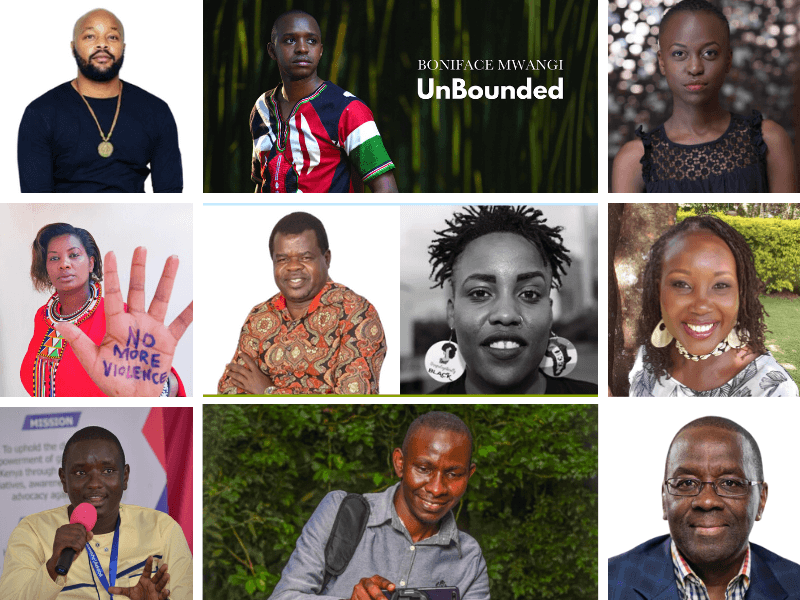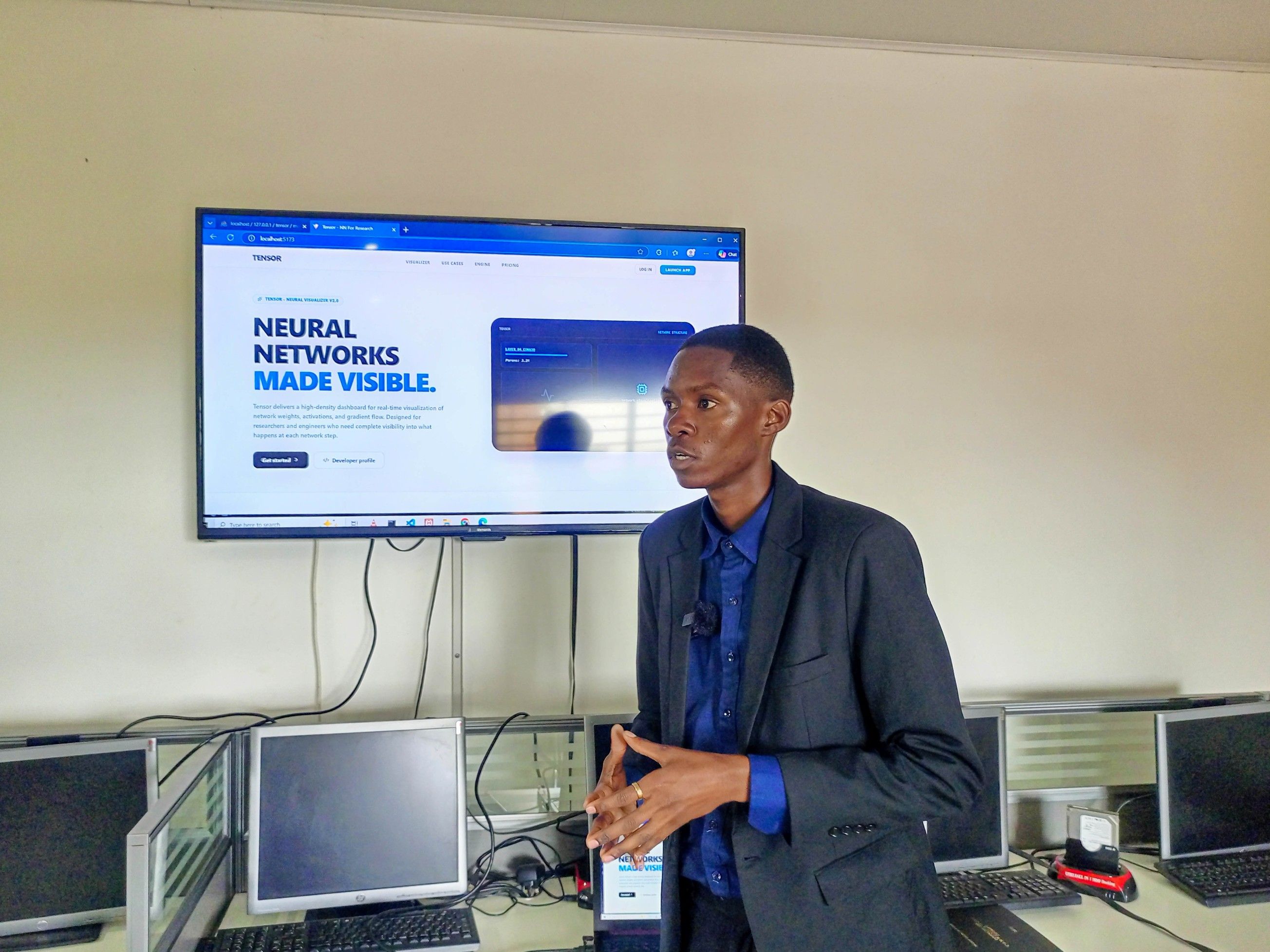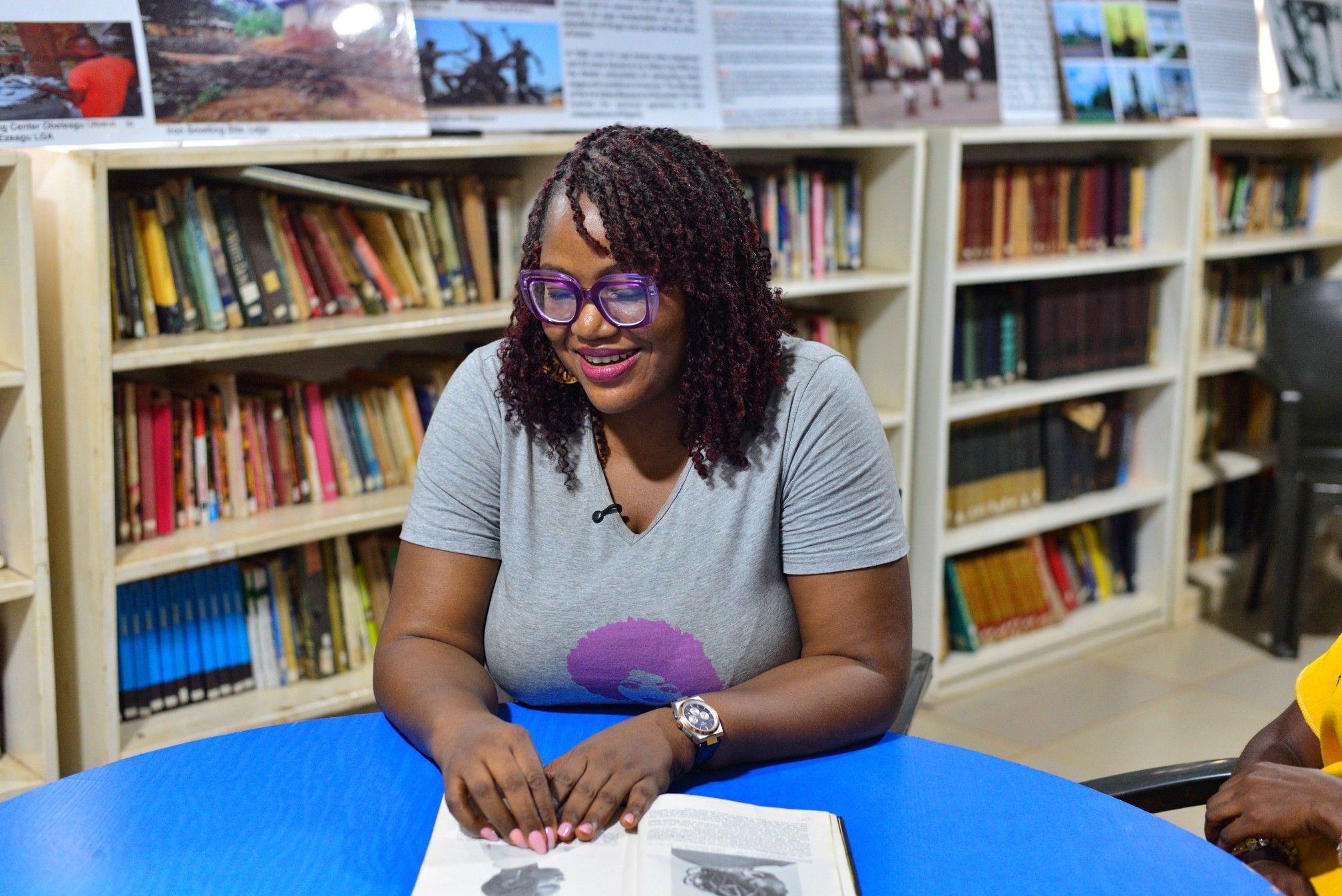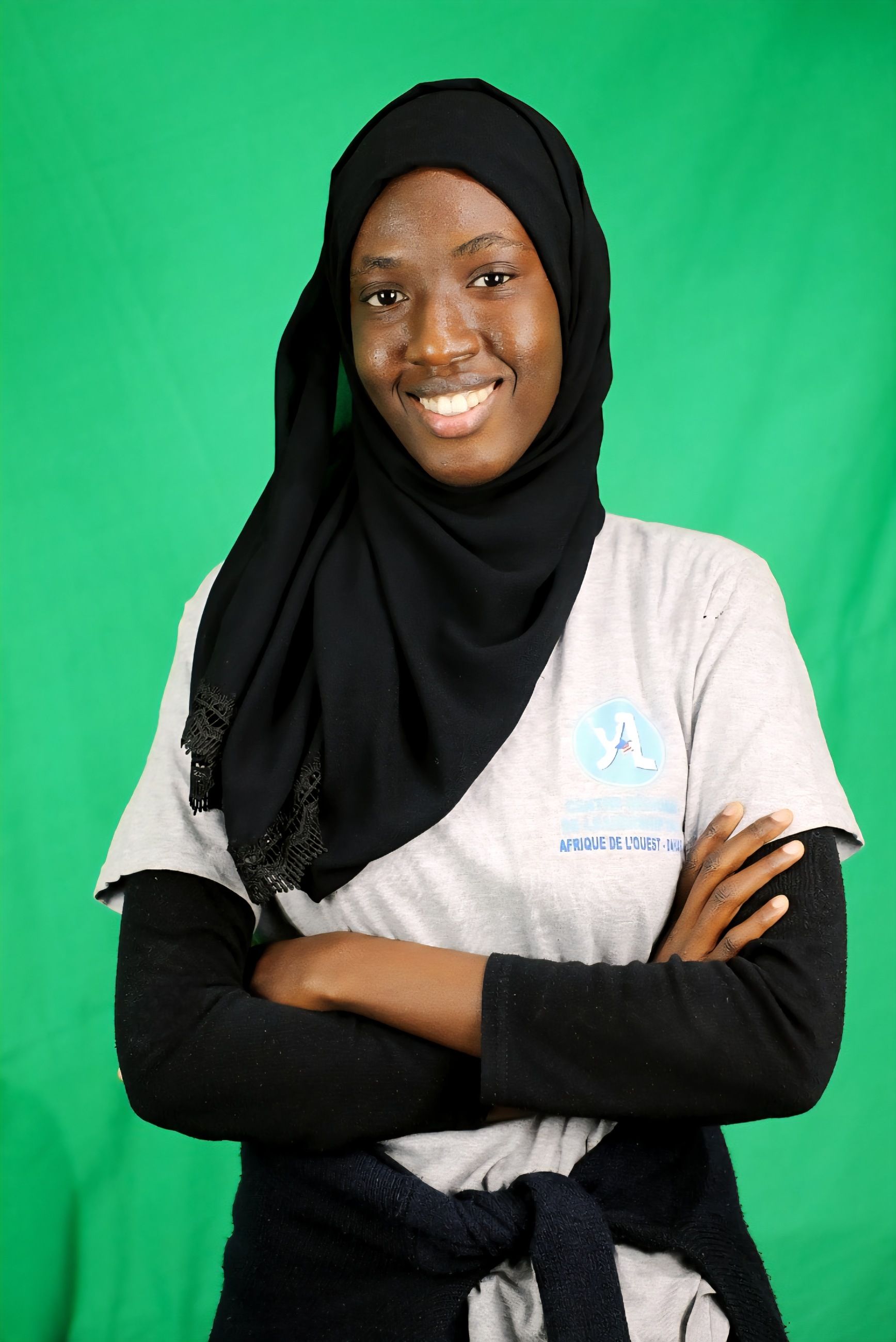
It is not easy to muster the courage to challenge the status quo and say no, even when the system is disadvantaging you.
On the morning of July 7th, 1990, a cross-section of Kenyan men and women who had had enough of the dictatorship and oppression stood up to make their voices heard. They believed in the idea that Kenyans must live free from fear of expressing themselves and planned and staged a dramatic and daring protest that became known as Saba Saba. Many ended up in cells and detention camps but their courage and sacrifice ultimately carried the day. Following the pressure from the politicians and activists, the ruling party of the day, KANU, allowed the formation of political parties. Freedom of speech and assembly were restored and multiparty elections were held 2 years later. July 7 has become one of the most important days in Kenya’s history.
As we continue to honour the courage of those who were willing to risk their lives for our political freedoms, we also recognise there is still work to be done, and it is not easy. It is not easy to muster the courage to challenge the status quo and say no, even when the system is disadvantaging you. Because quite often, the consequences are dire. And so we hail the warriors who have put themselves on the frontlines, intervening on our behalf and pushing boundaries in the fight for our collective freedom, not just politically, but also economically and socially.
Today, we celebrate the men and women who are working to ensure that Kenya remains a country of hope, a land of opportunity, and a place that all of its children can call home.
Nice Nailantei Leng’ete

At 8 years of age, Nice ran away from her home in the village of Noomayianat, Kenya, to avoid being subjected to forceful female genital mutilation/cutting (FGM/C). The practice was standard in her community, a way of marking the transition from girlhood to womanhood. Getting ‘the cut’ would ultimately mean that a girl would be married off and, therefore, have to discontinue her education.
For shunning the practice, Nice endured beatings and social stigma. She eventually convinced her grandfather, a Maasai elder, to allow her to escape ‘the cut’ and continue her schooling. Through him, the rest of the elders were persuaded, and the village of Noomayianat abandoned the practice altogether. Today, Nice works with Amref Health Africa Kenya, supporting communities like hers to transition away from FGM/C.
Thanks to Nice and advocates like her, more than 17,000 Maasai girls in Kenya and Tanzania have been able to continue their schooling, deciding for themselves if and when to marry and start a family.
Nice’s work has been recognised globally and she was voted one of TIME magazine’s most influential people of 2018. She was also a recipient of the 2016 Mandela Washington Fellowship for Young African Leaders.
Thomas Mwiraria

Thomas Mwiraria is a journalist, author, Pan-Africanist and social rights enthusiast who produces engaging and important human stories. He believes in the power of bold, ethical, humanised and solution-based storytelling for change and his approach blends human-centred design, multi-media journalism, data journalism and solution-based reporting using the mobile-phone (mobile journalism).
He started his Journalism career in 2017 with Daily Nation Newspaper and Mobile Journalism Africa as a regular contributor and has to date, contributed to numerous International media and journals.
Thomas specializes in health, youth and innovation, culture and heritage, climate, wildlife conservation and trafficking reporting, environmentally sustainable agriculture, migration, underrepresented voices (including the homeless community), refugees, stateless people, undocumented communities, indigenous people, youth, and people living with disabilities.
He was part of “I belong”, a campaign that resulted in the Makonde people being granted Kenyan citizenship. He also used his stories to fight for the Shona people’s rights to be granted birth certificates.
His work has earned him numerous accolades including the Thomson Foundation Journalism Now Scholar Prize Winner, Africa Leadership Institute Fellow 2019 (AFLI), YALI RLCEA Fellow (2019), Water Journalists Africa-Infonile Fellow and Grantee (Conservation and Wildlife Reporting), Climate Tracker Fellow (Sustainable Diets and Agriculture), Facebook and Agakhan University Mobile Journalism Fellow. In August 2018, Thomas was awarded an Eco-Warrior Award by Eco-Tourism Kenya for promoting People, Culture and Heritage through literature and Journalism. In December of the same year, he was named by African Youth Awards as one of the most influential youths in Africa.
Nerima Wako-Ojiwa
“What Kenya needs more than anything else”, Nerima says, “is leaders of integrity”.
The Executive Director of Siasa Place and 2018 Obama Leaders Fellow has made it her mission to not only do what she can to hold our leaders accountable for their actions but also create an environment that enables Kenyans to directly engage with the political mainstream in a meaningful way. Siasa Place educates young people and women about the constitution, governance and electoral processes, through community engagements and social media.
Nerima’s deep understanding of the Kenyan political landscape is evident in her eloquent articulation of the issues that matter. Her voice continues to inspire many young people to play an active role in determining how and by whom they should be led.
Boniface Mwangi
Boniface Mwangi, a firebrand social-political activist, award-winning photojournalist and author of UnBounded, is one of the most vocal and courageous Kenyans of our generation.
After witnessing first-hand, the brutality that disadvantaged Kenyans experienced in the wake of the Post- Election Violence that hit Kenya in 2007-2008, Mwangi established Picha Mtaani, a travelling photography exhibition that was staged all over the country, showcasing the images he had captured from the violence. This offered Kenyans a platform for individual reflection, honest dialogue, interpersonal healing and community reconciliation.
Following this initiative, Mwangi developed a strong human rights stance and his work focused on calling out (political and corporate) impunity and championing justice.
In 2012 Boniface founded PAWA254, a hub for creatives in Kenya, where journalists, artists and activists find innovative ways of achieving social change and advancing human rights.
Mwangi’s commitment to promoting social change has come at a heavy price. As a husband and father, his wife and children have endured hostilities from different quarters. The escalation of these hostilities has seen him being threatened with harm and/or death by powerful forces in government.
But Boniface continues to wage a spirited campaign against oppressive establishments. Today, his movement, Team Courage, has gained traction with many Kenyans who are inspired by his vision and consistency and have taken bold and effective actions in building a new Kenya.
Boniface has twice won the CNN Multichoice Africa Photojournalist of the Year Award and is the youngest Prince Claus Laureate. New African Magazine named him one of the 100 Most Influential Africans of 2014 and 2016 and he is also a senior TED Fellow. Time magazine recognized him as a Next Generation Leader in 2015 and he was selected as Kenya’s Top 40 under 40 men in 2016.
Jerotich Seii
Erratic and inordinately high bills, frequent outages, gross negligence, poor customer service…almost every Kenyan that’s connected to the power grid can relate to any one of these issues. The complaints are rife and Kenyans are fed up. In 2018, Jerotich Seii became, to quote her words, “more than a little fed up”, and, together with a handful of other outraged electricity consumers decided to bell the cat. She has been at the forefront of a spirited campaign to right the wrongs that have been committed by the 98-year-old monopoly that is Kenya Power and Lighting Company (KPLC). Under the #SwitchOffKPLC, Jerotich has put KPLC under sustained pressure to refund billions illegally taken from Kenyans through a billing scandal that has taken root at the company. She also wants to see to it that Kenyans get access to affordable, high-quality services from the company.
“The few of us who ignited this campaign in January 2018 were, initially, driven by our anger regarding our individual domestic bills. We saw that fixed and variable tariffs did not add up. This campaign has partly been fuelled by KPLC’s “pay-first-ask-questions-later” motto, which left many consumers with inflated bills that they were forced to pay to avoid being disconnected”, Jerotich says.
In an article aptly titled, Power Struggles: Unmasking the Thieves behind the KPLC Heist, Jerotich writes, “What is powerful about the #SwitchOffKPLC campaign is the relatability of the theft. When ordinary Kenyans attempt to fathom corruption scandals that are in the millions and billions, the zeroes become far too many to compute but this is not because we are stupid; it is rather because we have been traumatised to the point of absolute numbness. Or cynicism. The theft is therefore rendered abstract and quickly placed aside. What the #SwitchOffKPLC campaign does is that it highlights, in simple terms, the extra tens or hundreds and thousands of shillings that individual Kenyans are forced to part with for no reason other than blatant theft. And what an eye-opener it has been. Consumers are fed up. They are acting”.
She concludes with these words:
“The KPLC heist looms significantly over the lives and times of millions of Kenyans who have come together in their thousands under the #SwitchOffKPLC campaign on behalf of others. These men and women have activated a revolution and are daring to imagine a different Kenya. We are collectively determined to cut off the heads of the Medusa-like snakes that have held us hostage since 1922. In straight-speak, we are going after the energy sector thieves and we will unmask them. And then, we are coming after you”.
Okiya Omtatah

“At creation time, God gave Adam and Eve the power over all that he had created, but He did not give them the power over themselves; He gave them the law. And when they broke that law they lost the Garden of Eden. Hence, the rule of men is doomed since it is anathema to the will of God. Only the rule of law works”. These are the sentiments that activist Okiya Omtatah expressed during an interview with the Daily Nation in 2019.
Omtatah is the relentless activist who has implanted himself in the corridors of justice, arguing thousands of cases on behalf of Kenyan citizens in the hope that he can save them from the abuses meted by state authorities.
Labelled as the defender of public interest, he has taken on rogue government agencies and powerful public servants who are disobeying the law.
It was Omtatah who went to court to stop the importation of duty-free sugar that was later found to be contaminated with deadly chemicals. The self-same Omtatah recently won an 8-year court battle to recover 843 acres of public land that had been grabbed in Busia county.
His quest for a just society has not gone unnoticed. Not by the ordinary Kenyans who see him as a beacon of hope, and not by the powerful individuals on whose toes he has stepped; and despite the beatings and lockups, he has had to endure, Omtatah remains unintimidated.
“I know that there are no human beings who are mighty and powerful. Only God is mighty and powerful”, he says.
Omtatah has been honoured with a Lifetime Achievement award from the National Coalition of Human Rights Defenders Kenya and the Working Group on Human Defenders.
He is also a playwright and has published numerous plays all based on themes of justice and rule of law.
Tony Mwebia
“Not involving men in the fight against FGM is like having a doctor treat the symptoms of a disease and ignoring the disease”, Tony Mwebia has often been quoted saying.
Tony is an award-winning Gender Equality Advocate. He is the founder of Men End FGM Movement (#MenEndFGM), an online and offline campaign, that rallies men and boys to join the fight against Female Genital Mutilation (FGM), Child marriage and other forms of sexual and gender-based violence (SGBV). His career spans over 6 years both in the NGO and Government agencies in Kenya.
Tony is also a writer with several NGOs in addition to his website. https://tonymwebia.co.ke/ where he shares his personal experiences and views in the fight against FGM and other related harmful cultural practices. In October 2019 Tony was named a national hero in Kenya for his end FGM work and was awarded a certificate by the president of Kenya during Mashujaa Day celebrations.
For his work, Tony received the Break The Silence Award 2019 by There Is No Limit Foundation USA, he was a finalist at the Diversity and Inclusion Awards Kenya 2019 as a Gender Equality Champion and he is the reigning End FGM Social Media Activist 2017- 2019, a recognition by the Anti-FGM board Kenya.
Maryanne Kasina
“Feminister, smashing patriarchy. An advocate of women and girls rights and gender inclusiveness. Radical Pan-Africanist”, that is what Maryanne Kasina’s bio reads on her twitter page.
The co-founder of Kayole Community Justice centre is a fierce feminist and advocate for the rights of women and children. She was born and raised in Kayole and is a survivor of Gender-Based Violence. She chose to rise from her pain to help other women in fighting for their rights. Her passion was ignited when she first volunteered in a community program with Plan International, safer cities for girls where she gained the skills and confidence that help her to date in addressing issues of sexual reproductive health and rights, championing for safe spaces for both boys and girls. Her newfound voice motivated her to join the Social Justice movement where she has steadily grown in Ideology to become one of the key women in leadership. Her biggest mission in life is to challenge the patriarchal systems that infringe on the empowerment and success of women.
Denis Nzioka

In a country where sexual minorities do not have the freedom to exist and homophobia is overtly promoted, Dennis Nzioka’s courage cannot be gainsaid. Providing equal rights for LGBTQ individuals is something Dennis will not compromise on. He is a sexual and gender minority activist and author with a particular focus on LGBTIQ and Sex Worker communities in Kenya and Africa. He has been instrumental in the formation of several organisations focused on queer and sex worker’s rights while supporting regional organising around sexual diversity, bodily autonomy and choice-expression.
Dennis ran Kenya’s first safe house for LGBTQ persons in 2009. At the same time, he was the first Kenyan to publicly come out on national TV. Since then, his articles and blogs have been published by various media outlets globally. He has also been making regular TV and radio appearances.
He founded the Denis Nzioka News Agency and Service in 2010 as the first-ever exclusive media agency and service for the LGBTQI, sex work and allied community in Kenya. By providing advocacy and resource materials, the agency works to transform public opinion and social attitudes through grassroots reporting and community commentary.
Dennis was named as one of the World’s Top 10 Tweeters on Sexuality and Development. He received the 2016 Sauti Award for ‘balanced reporting of sex work issues,’ and to celebrate their 10th anniversary, the South Africa Feathers Awards named him as its 2018 Africa honouree. He also received the Munir Mazrui Lifetime Achievement Award by the Defenders Coalition and the Best EA Activist Award in the Tanzania Activist Awards.
Dr Willy Mutunga
For advocating for the freedom of speech and advancing the human rights agenda in Kenya, Dr Willy Mutunga lost his job and was incarcerated for 16-months. As one of the founding fathers of the Human Rights Movement in Kenya, the former Chief Justice of Kenya and President of the Supreme Court, has played a pivotal role in the constitution-making processes in Kenya from the 1970s and particularly, from the early 1990s. He worked on the implementation of the progressive 2010 Kenyan Constitution as head of the Judiciary and President of the apex court in the country. He advocated, in his writings and judgments, for the development of indigenous, robust, patriotic, decolonized, de-imperialized, progressive, and transformative jurisprudence that is not insular and does not pay unthinking deference to other jurisdictions, regardless of how prominent they may be. He has also advocated for a progressive jurisprudence for Africa and the global south as part of the significant contribution in the struggle for a new just, peaceful, and equitable world.
During his tenure as Chief Justice, Mutunga sought to lay permanent and indestructible foundations for a transformed judiciary. Under the blueprint of the Kenyan Judiciary Transformation Framework 2012-2016, he achieved impressive progress in bringing the justice system closer to the ordinary people. He also worked on the linkage between formal and traditional justice systems as decreed by the constitution. He not only humanized the Kenyan judicial system but also reduced the case backlogs significantly. He aimed to use technology as an enabler of justice, as well as to bring about equitable and transparent systems of recruitment, promotions, and training. He supported and strengthened the Judicial Training Institute as a nucleus for juristic training and an institution of higher learning.
Dr Mutunga is well known for his fight against corruption in the Judiciary and in Kenya as a whole. He spearheaded, in the national interest, independent and principled dialogue, consultation, and collaboration between the three arms of government, the devolved governments, civil and corporate society, the media, and the public as a whole. Under his watch, the notion of the Judiciary as an institutional political actor began to take root.
He has published 2 first author books, 8 co-author books, 39 scholarly articles, and 44 unpublished lectures and papers read in conferences. He has also written 16 forewords and prefaces in books on a variety of disciplines. Through these writings, Dr Mutunga’s trajectory of political activism is always robustly reflected.
Also read: Dr Willy Mutunga on Walking in Your Truth





